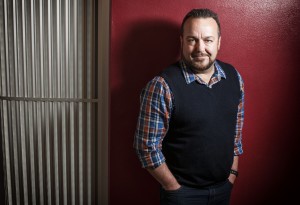Blog by Professor John Scott (j31.scott@qut.edu.au)
Law has always been about story-telling. Legal spaces, such as the courtroom, are stages where people wear costumes and act out parts for varied audiences. The sociologist Harold Garfinkel (1917-2011) used the term ‘degradation ceremony’ to describe a process in which ones identity is ritually transformed into a lower identity, which sits lower in a groups hierarchy. He argued that courts did this work in a formal fashion, but such rituals are universal and occur informally in a range of social settings.
It has been argued that the spectacle of criminality, once displayed on a scaffold and now mostly seen in media reportage, serves to teach us about what is appropriate and normal and behaviour. The courtroom in in this sense expresses the boundaries of society and what is valued.
However, legal dramas also impact upon the courtroom. Criminologists have coined the term CSI Effect to refer to the mainstreaming of forensic investigation in popular culture that has led jurors to demand more forensic evidence in criminal trails and raise the standard of proof for prosecutors.
Here are Ten must-see courtroom dramas. In all of these the crime plays second-fiddle to a bigger story, be it official corruption, race relations or the exploitative politics of Empire.
- The Verdict (1982). Directed by Sidney Lumet (1924-2011), with Paul Newman (1925-2008) as an alcoholic lawyer who takes on a medical malpractice case.
- To Kill a Mocking Bird (1962). Directed by Robert Mulligan (1925-2008) and with Gregory Peck (1916-2003) in an Oscar winning role as Southern lawyer Atticus Finch, defending a black man accused of raping a white teenage girl
- Breaker Morant (1980). Australian film directed by Bruce Beresford (1940-) and starring Edward Woodward (1930-2009) in the title role. Based on historical incidents during the Second Boer War (1899-1902)
- A Few Good Men (1992). Directed by Rob Reiner (1947-), with an all-star cast, the film deals with the court marshal of two US Marines, accused of murder
- In the Name of the Father (1993). Directed by Jim Sheridan (1949-) and starring Daniel Day-Lewis (1957-). Tells the story of Guildford Four who were wrongly accused of 1974 pub bombings
- Paths of Glory (1957). Directed by Stanley Kubrick (1928-1999) and starring Kirk Douglas (1916-) as a French officer in WW1, whose soldiers are court marshaled when they refuse to engage in a suicidal assault
- 12 Angry Men (1957). Directed by Sidney Lumet (1924-2011), with Henry Fonda (1905-1982) as a juror who resists passing a sentence on a young slum dweller because he has ‘reasonable doubt’
- Witness for the Prosecution (1957). Directed by Billy Wilder (1906-2002) and starring Charles Laughton (1899-1962) as a barrister at London’s Old Bailey. From a short story and play by Agatha Christie (1890-1976)
- Presumed Innocent (1990). Directed by Alan J. Pakula (1928-1998) with Harrison Ford (1942-) as a prosecutor accused of murdering his female colleague, who is also his mistress
- Anatomy of a Murder (1959). Directed by Otto Preminger (1905-1986), with James Stewart (1908-1997) as a defense attorney. Noted for its accurate depiction of legal processes and, what were then, vivid depictions of sex, set against a jazz soundtrack.
Next week prison dramas





Comments are closed.